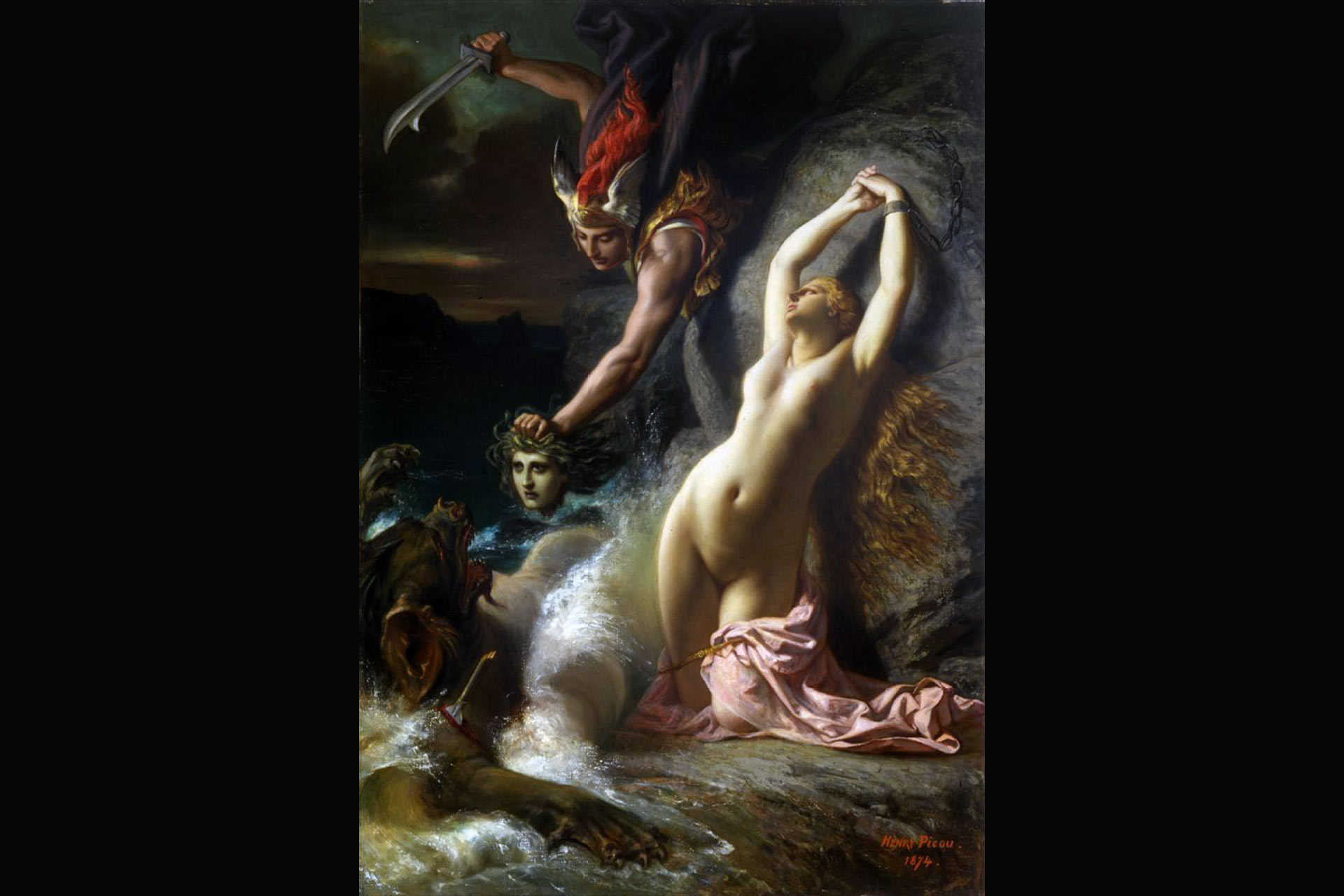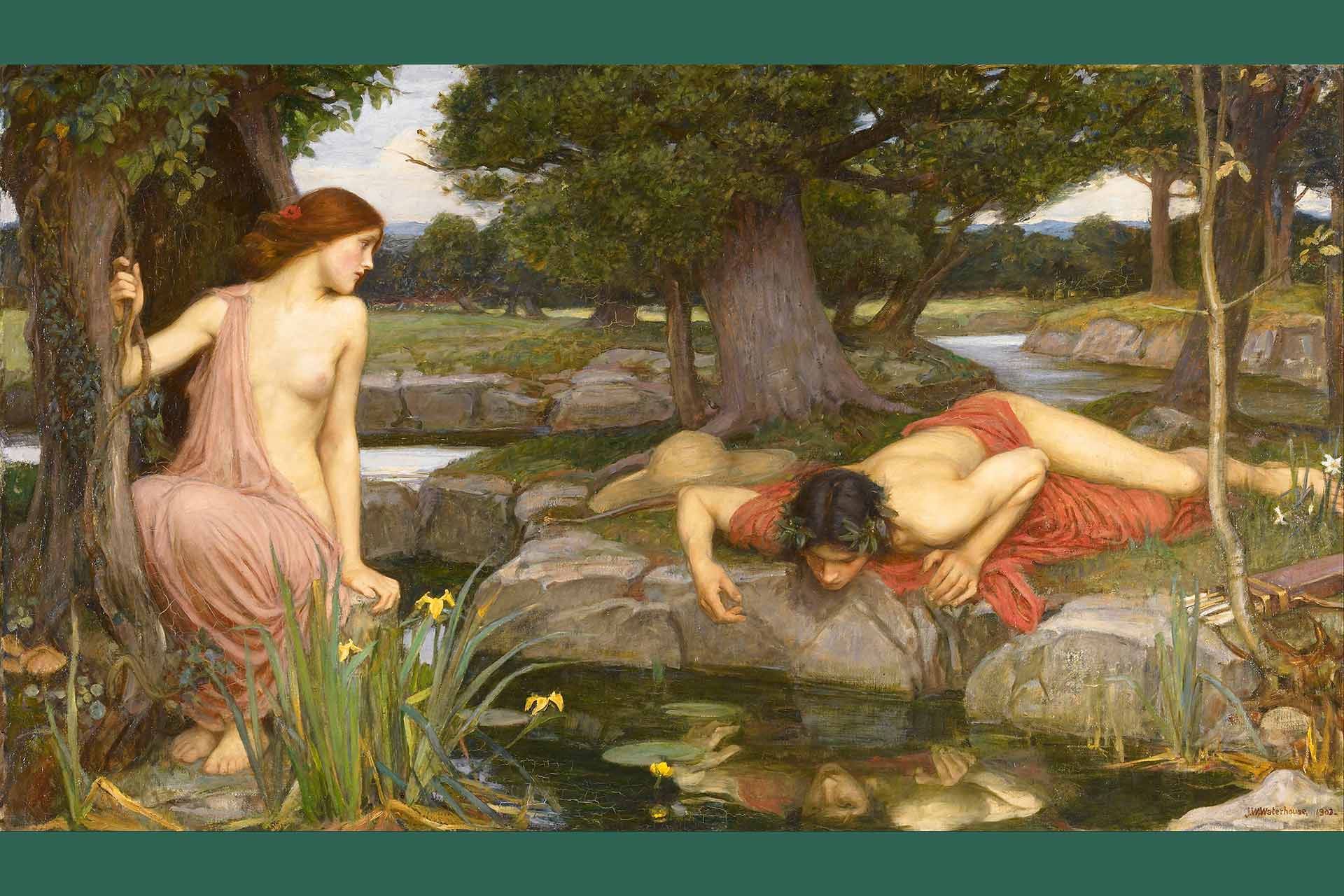
Next month, BBC Radio 1's Big Weekend 2025 will be hosted in Liverpool. It’s the perfect moment – or kairos, if you're a fan of Greek philosophy/rhetoric – to explore how musicians make ancient references. Sometimes, antiquity can help us convey hard emotions and feel less alone and more connected with our past.
Singer-songwriter Natalie Mering, a.k.a “Weyes Blood”, makes beautiful use of ancient mythology. She's released 5 studio albums, two being part of an ongoing trilogy. Titanic Rising (2019) explores society’s future, observing our relationships – with each other, the universe, and the natural world.
She touches on technology's impact on connection (warning us), and finding meaning when navigating change. Her song “Andromeda” refers to the “big wide open galaxy” and the ancient figure it’s named after. The mythical hero Perseus saved Andromeda from being killed by the sea-monster Cetus. After her death, Athena turned Andromeda into a constellation.

Henri Pierre Picou, “Andromeda Chained to a Rock” (1874). Wikimedia Commons. Public Domain.
Mering highlights a relatable sentiment for women in their twenties; being hardened by situations that will have you “runnin’ from (your) own life.” The song starts with a defeated, avoidant attitude: there’s nothing for her. She’s hopeless, like Andromeda, alone. But as the song progresses, so does her inner optimism. She urges us to “lift the heart from the depths it’s fallen to” and seeks someone that will help her do this. She meets someone, is “ready to try” connection again, and is honest – they must accept and love her despite all her ‘baggage’, and be patient if she “shatters”. Mering's reference to the myth effectively communicates this naive, familiar desire for a saviour to rescue her, similar to Andromeda.

Weyes Blood singing ‘Andromeda’. © Aneeka Khan.
And In The Darkness, Hearts Aglow (2022) explores hyper-isolation, influenced by the pandemic and technology. The album is tender, warm, and comforting – we aren’t the only ones struggling, and there’s beauty in embracing that interconnectedness. Giving everyone, especially ourselves, grace is important. In “God Turn Me Into a Flower”, Mering uses the myth of Narcissus – who fell in love with his reflection and died unaware that it was himself, a flower taking his place – to reject technology’s competitive nature, encouraging self-acceptance and vulnerability.

John William Waterhouse, "Echo and Narcissus" (1903). Wikimedia Commons. Public Domain.
The conventional takeaway is that Narcissus was obsessed with himself (hence ‘narcissism’), but Mering told NME: “the real crux...is that he didn’t recognise himself” (Kemp, 2022). There are similarities between the lyrics and social media’s exacerbation of comparison and insecurity. Fixating over appearances is ultimately futile; we’ve become obsessed with our online, manufactured personas and neglected what matters. But there’s strength in surrendering to the universe instead of worrying about image, becoming soft and pliable like Narcissus post-metamorphosis.
I was lucky enough to see Weyes Blood live in November 2023 (and get her guitar pick!). For me, her music is a form of philosophical exploration and makes me more optimistic. In a time when there’s lots wrong, it’s nice to find beauty in the mundane (or hearts glowing in the darkness!). It’s also really fun for me, as a Classics student, to explore these references in her lyrics and share them! I wonder whether the final album in the trilogy will also reference ancient mythology!